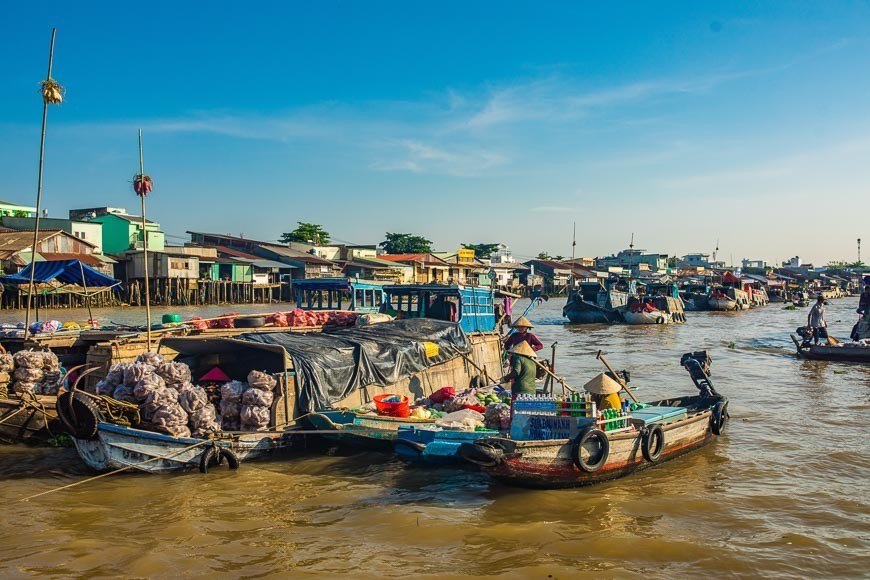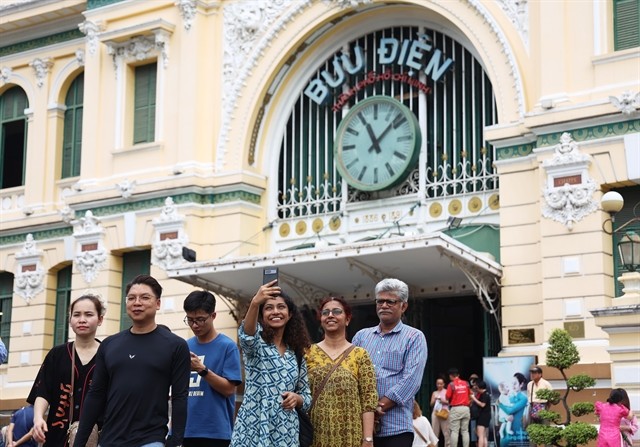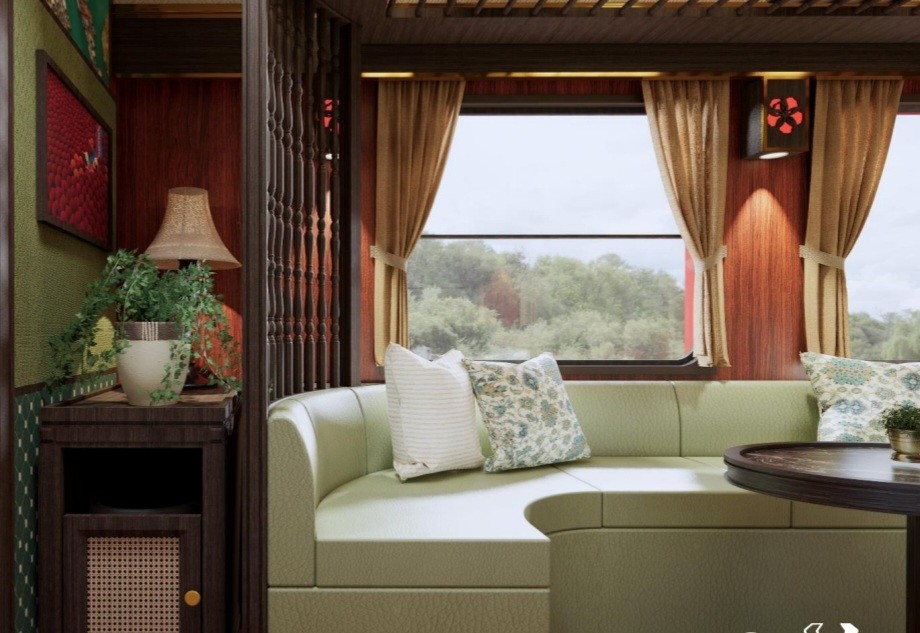Kien Trung Palace: Reviving An Ancient Heritage Of Vietnam
According to the Hue Monuments Conservation Center, Kien Trung Palace was built during the reign of King Khai Dinh with the word "Kien" meaning to build or establish, and “Trung” means uprightness. Along with the relics of Thai Hoa Palace, Can Chanh Palace, Can Thanh Palace, and Khon Thai Palace, Kien Trung Palace is one of 5 important works under the Nguyen Dynasty.
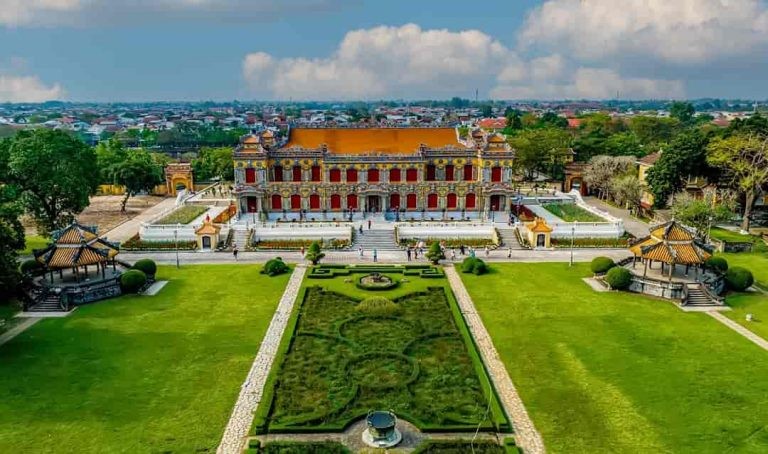 |
| Kien Trung Palace is one of 5 important works under the Nguyen Dynasty. Photo: Danangprivatecar |
In 1827, King Minh Mang initiated the construction of the Minh Vien Pavilion on the land where Kien Trung Palace now stands, with a total height of about 10.8 meters. By the time of King Tu Duc, this structure was destroyed.
In 1919, King Duy Tan mobilized labor to build the Du Cuu Pavilion on this site. During the reign of King Khai Dinh, the Du Cuu Pavilion area was expanded to build a palace named Kien Trung. This was the main residence of the king within the imperial citadel.
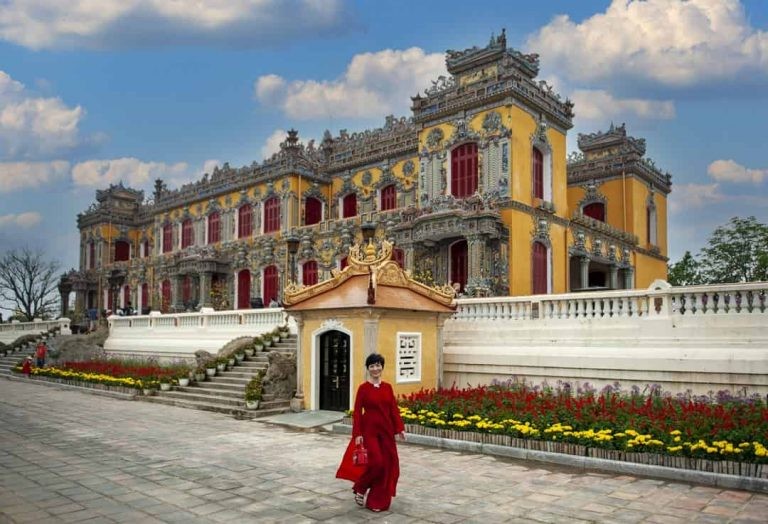 |
| In terms of architecture, in front of Kien Trung Palace is a scenic garden with three beautifully sculpted dragon staircases leading up to the palace terrace. Photo: Danangprivatecar |
From 1921 to 1923, Kien Trung Palace was entirely rebuilt in a Neo-Classical style, a large-scale project bearing the distinctive Khai Dinh era style with intricate and meticulous decorations, especially the decoration using pieces of porcelain on a lime plaster background. During the reign of Bao Dai, the structure underwent further repairs and additions.
In 1932, King Bao Dai renovated the interior of this palace, installing some modern conveniences from the West, including bathtubs. After the August Revolution, Kien Trung Palace became a witness to the event of King Bao Dai meeting with the Provisional Government delegation to discuss abdication.
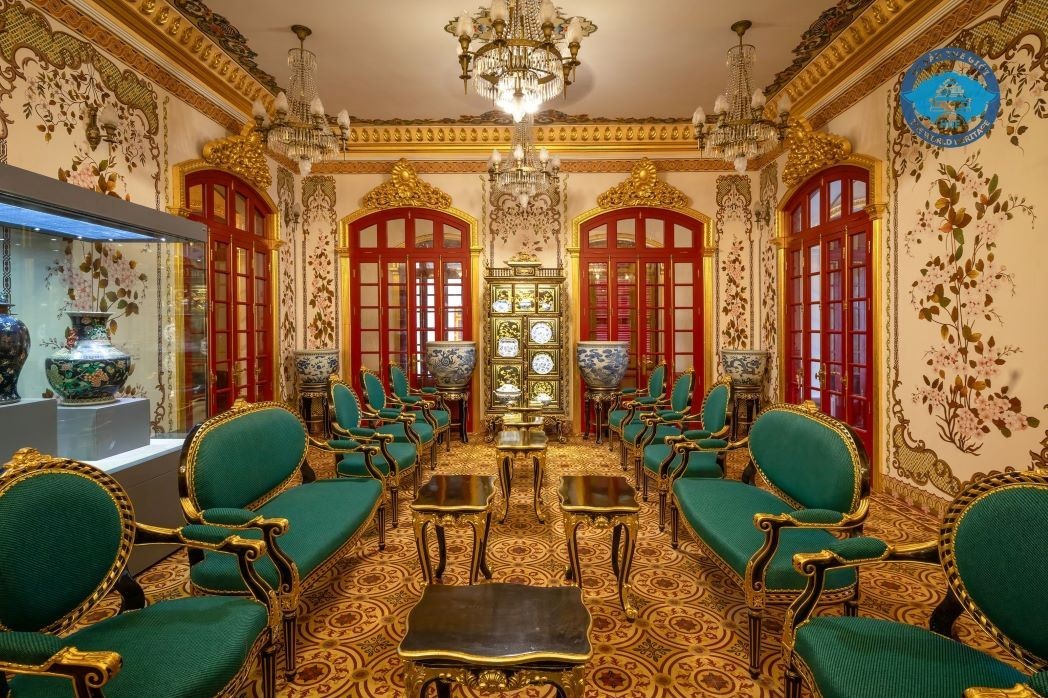 |
| The palace interior has been adorned by the Hue Royal Antiquities Museum with European porcelain, noble blue-colored tables and chairs, and palanquins. Photo: Baoquocte |
In the period after 1945, this palace and many important architectural works in the Imperial Citadel and the Forbidden City were almost destroyed. At that time, only the ruins of Kien Trung Palace remained.
After 72 years in ruins (1947-2019), the restoration project for Kien Trung Palace commenced, and now, after 5 years, the construction is nearly completed and will open its doors to visitors in Giap Thin Lunar New Year (2024).
The palace interior has been adorned by the Hue Royal Antiquities Museum with European porcelain, noble blue-colored tables and chairs, and palanquins, recreating the processions of ancient Emperors and Queens.
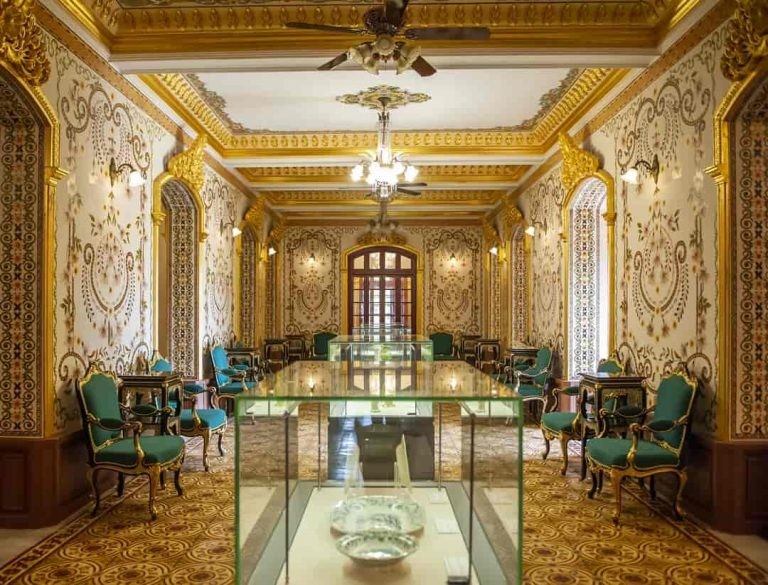 |
| The interior furnishings of the palace are splendid and luxurious. Photo: Danangprivatecar |
Kien Trung Palace was invested in constructing items such as the overall renovation of foundation walls, railing system, campus yard including Tien Vien and Hau Vien, and the restoration of Kien Trung Tower, technical infrastructure system, and green trees.
What makes Kien Trung Palace unique is the combination of Vietnamese architecture and Western construction style. This is an important typical project, marking a unique and special period of traditional Hue royal architecture.
Phan Thanh Hai, Director of the Department of Culture and Sports of Thua Thien Hue province, is one of the people who laid the foundation for the project to restore Kien Trung Palace. With this successful restoration, he hopes that 2024 will mark the sublimation of the heritage.
On February 6, 2024, Hoang Viet Trung, Director of the Hue Imperial City Conservation Center, announced that the restoration project for Kien Trung Palace had completed 100% of the construction volume.
According to the Department of Tourism of Thua Thien Hue, during the first 3 days of Tet, the relics managed by the Hue Monuments Conservation Center had about 65,000-68,000 visits, including about 12,000 international visitors.
In terms of feng shui, Kien Trung Palace is located at the northernmost point of the celestial axis passing through the center of the Imperial City. The combination of Renaissance Italian architecture, French architecture, and the characteristic features of ancient Vietnamese structures brings a unique and exquisite beauty to the palace.
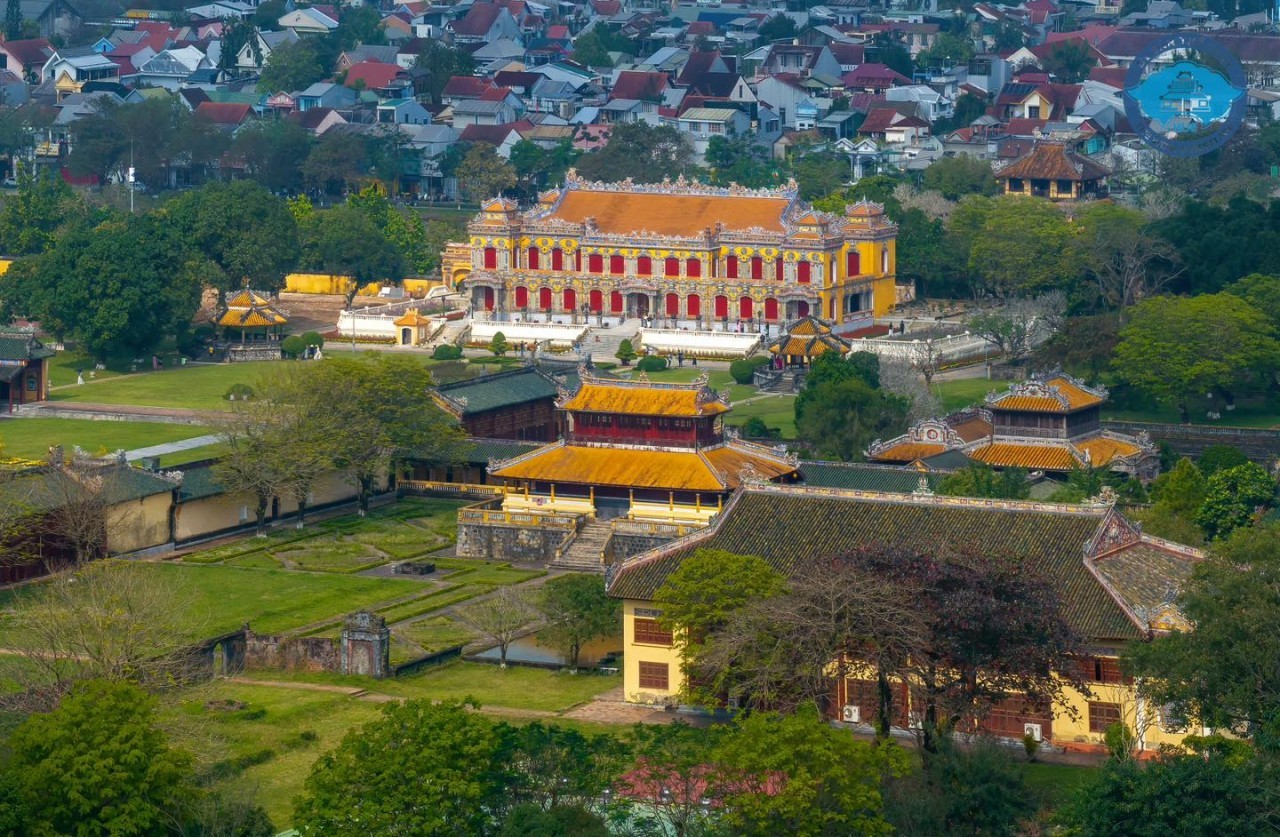 |
| In terms of feng shui, Kien Trung Palace is located at the northernmost point of the celestial axis passing through the center of the Imperial City. Photo: Baoquocte |
In terms of architecture, in front of Kien Trung Palace is a scenic garden with three beautifully sculpted dragon staircases leading up to the palace terrace. The facade is adorned with prominent colorful ceramic pieces.
The main floor consists of 13 open doors, with the central space having 5 doors, and each side space having 3 doors, with two corner spaces on each side having 2 doors. All are designed to protrude outward.
The upper floor of the palace is the attic, with architecture similar to the main floor. At the top is a tiled roof with decorative railings in the traditional Vietnamese style.
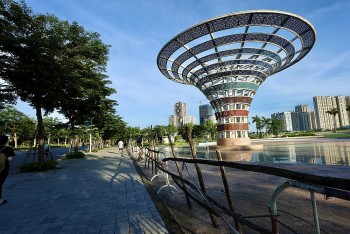 | Explore The First Astronomy Park In Southeast Asia Located in Duong Noi urban area in Ha Dong District, Hanoi, Astronomy Park is a public project for outer space lovers. |
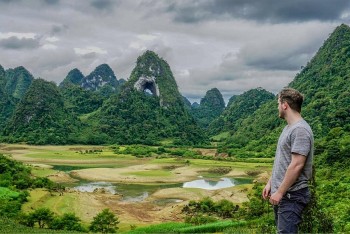 | Booking.com: Top 10 Friendliest Destinations In Vietnam In 2024 On February 20, the online booking platform Booking.com announced the ranking of the 10 most friendly destinations in Vietnam in 2024. |
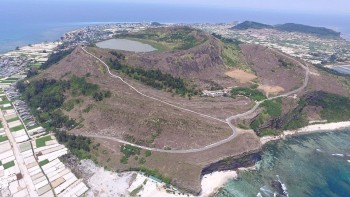 | Ly Son Island: Home To Ancient Volcanic Craters Over millions of years of geological tectonics, Quang Ngai owns many astonishing ancient volcanic craters along the coast and Ly Son island district of Vietnam. |
Recommended
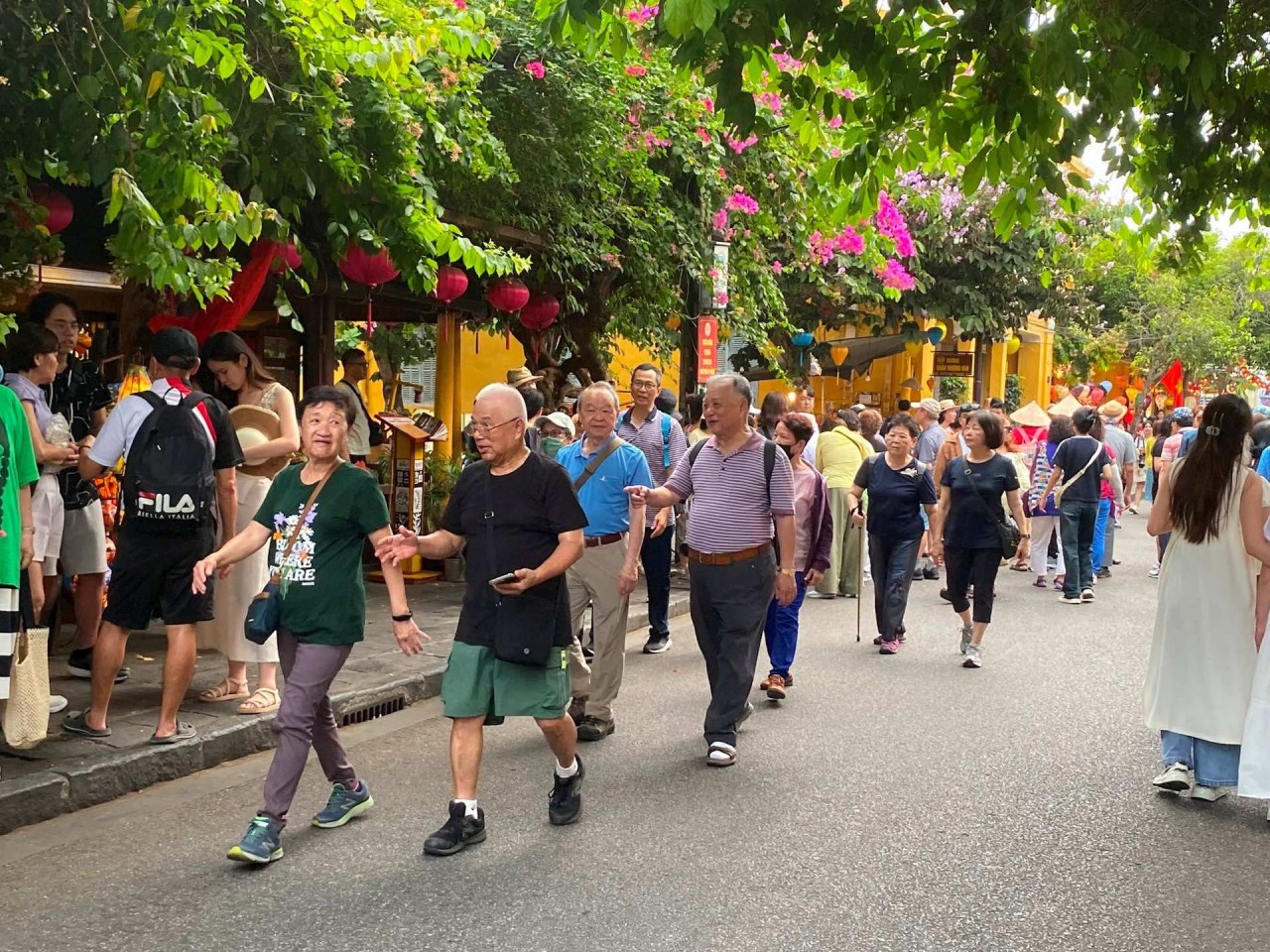 Travel
Travel
Strategies for Sustainable Growth of Vietnam’s Tourism from International Markets
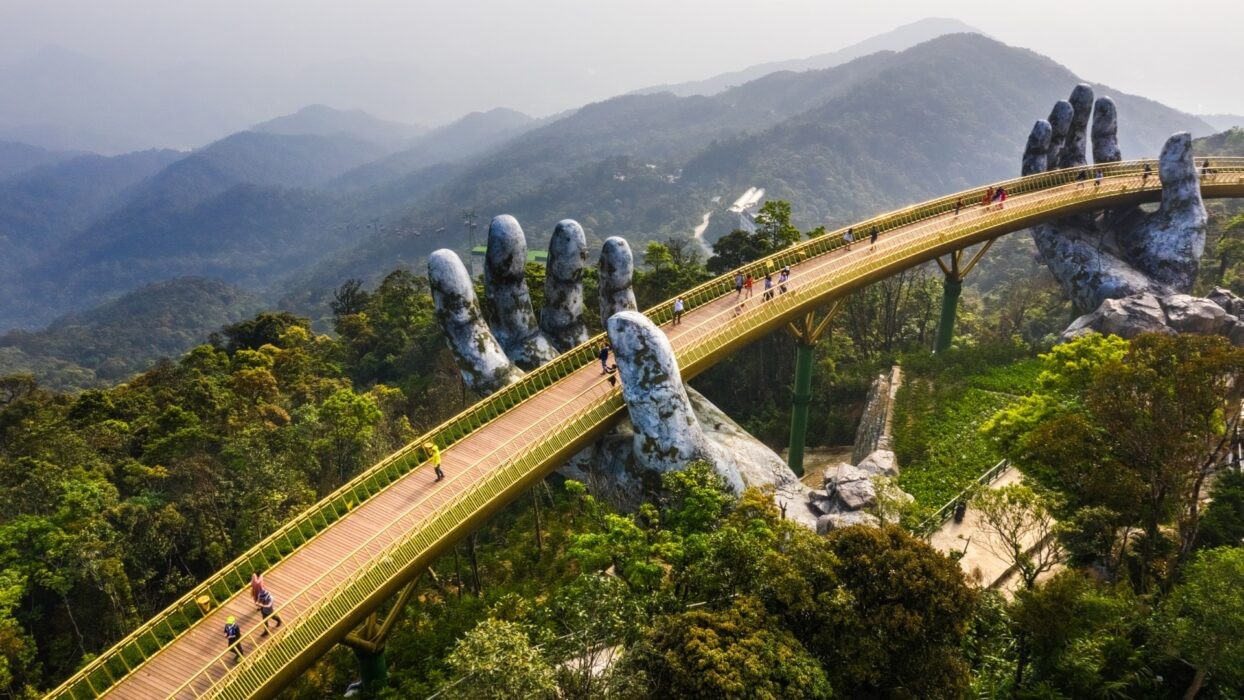 Travel
Travel
Vietnam Strengthens Its Presence On The Global Tourism Map
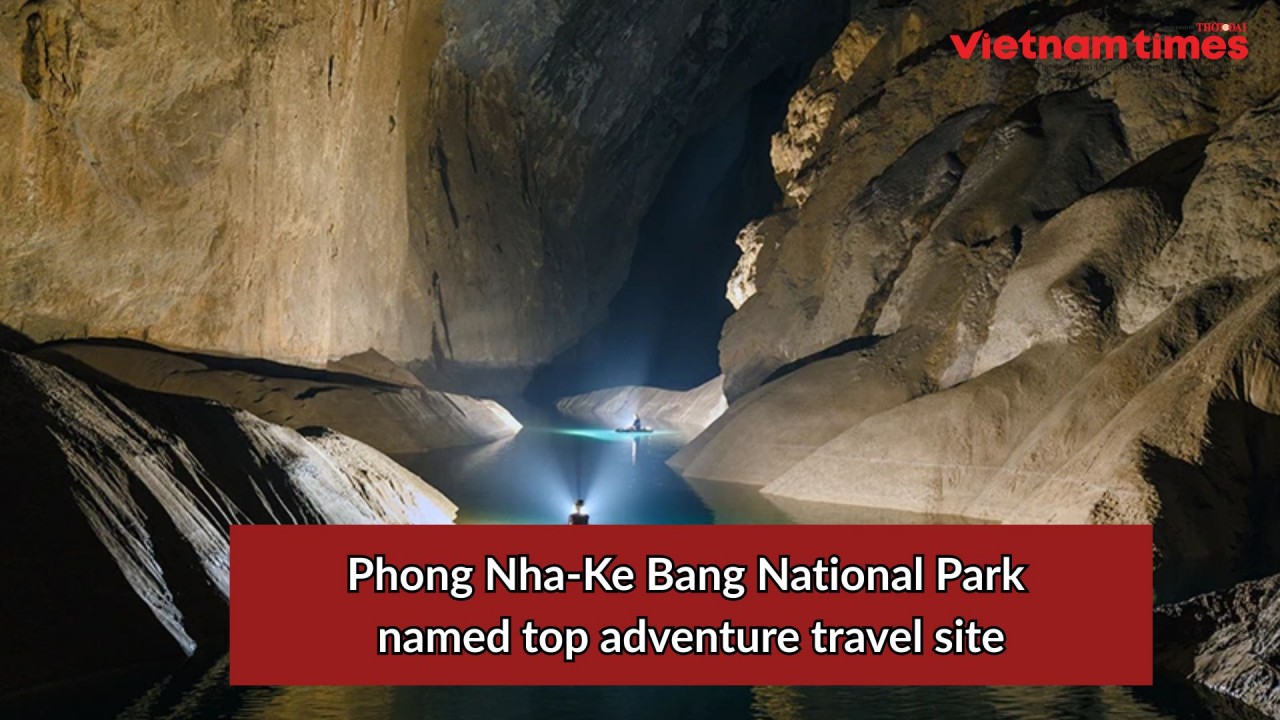 Multimedia
Multimedia
Phong Nha-Ke Bang National Park Named Top Adventure Travel Site
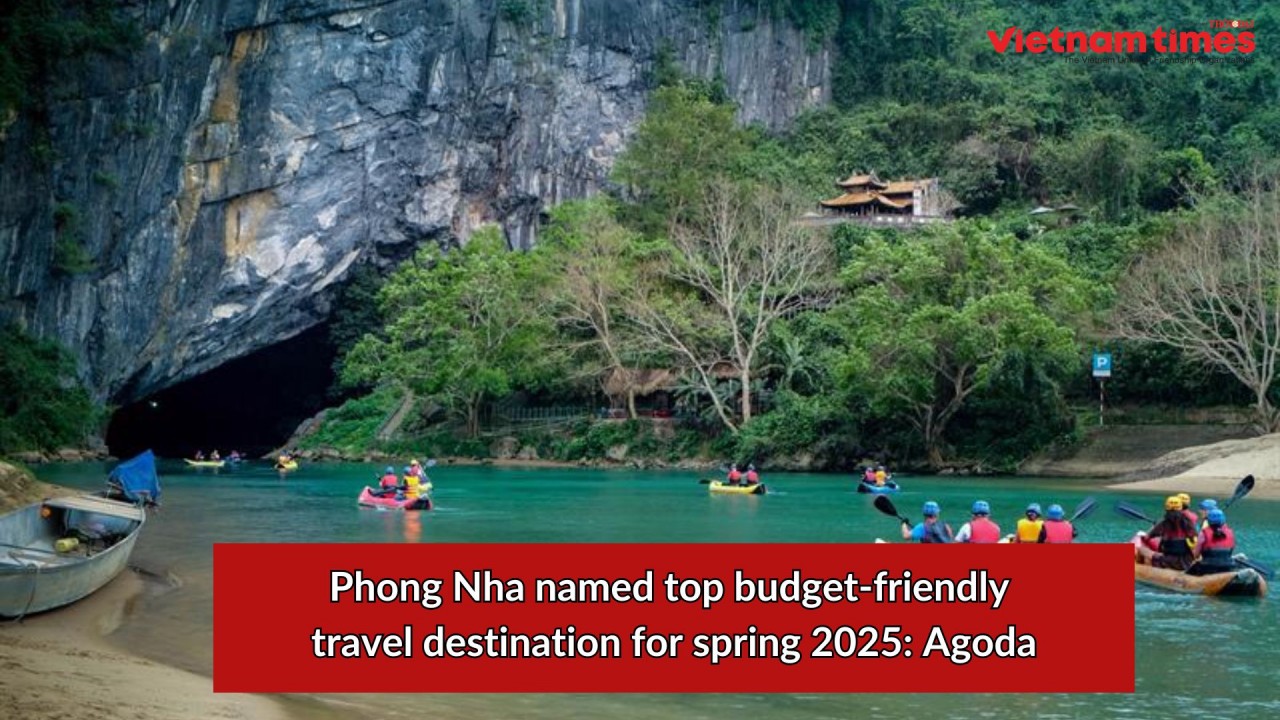 Travel
Travel
Phong Nha Named Top Budget-Friendly Travel Destination for Spring 2025: Agoda
Popular article
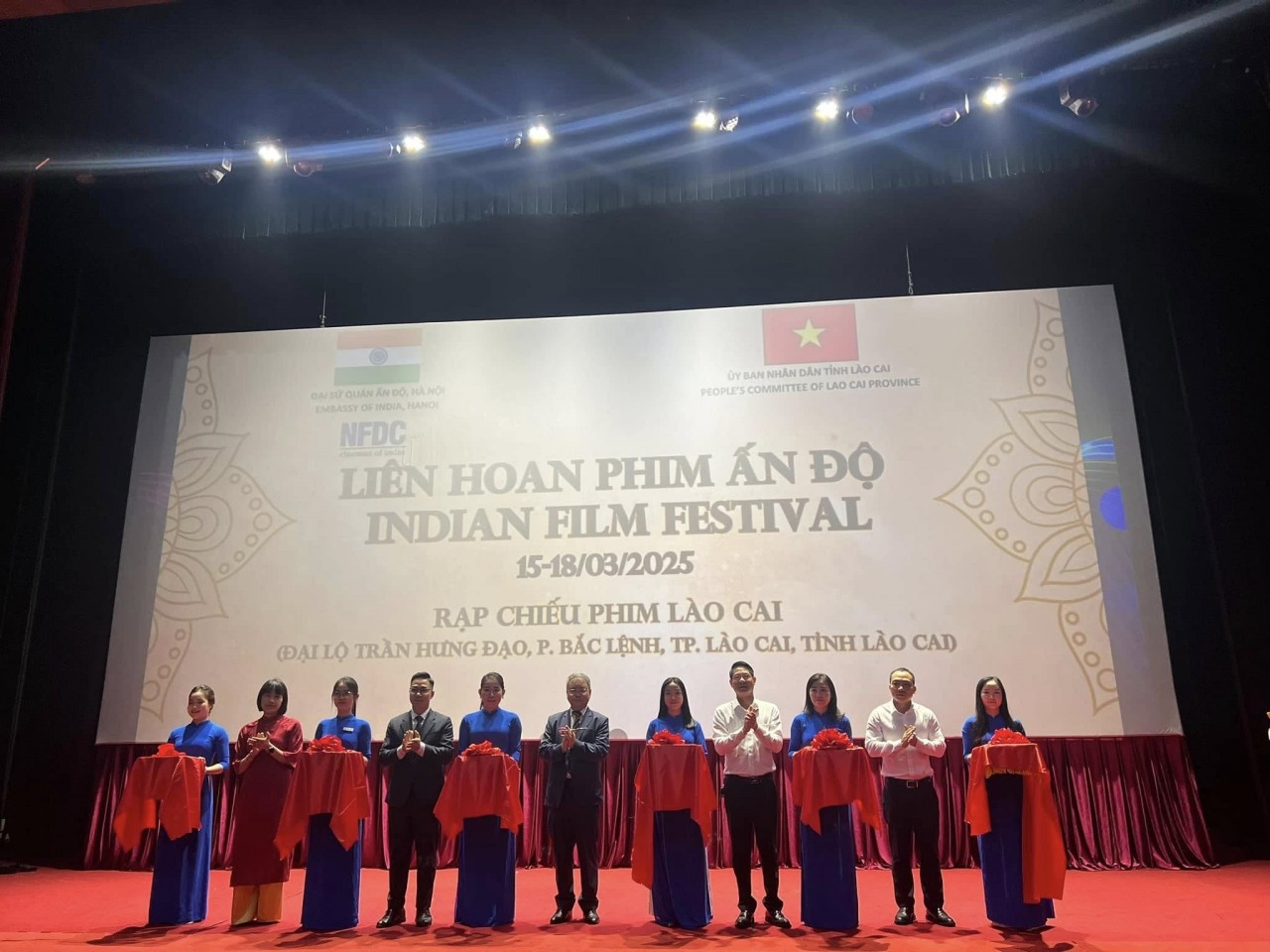 Travel
Travel
Four Indian Films Introduced to Lao Cai Audience
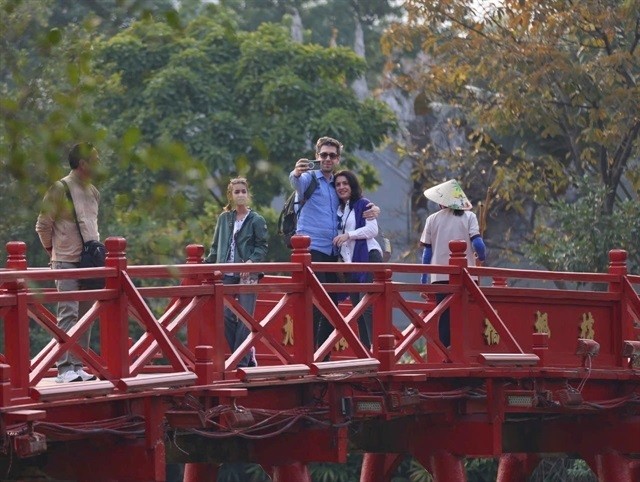 Travel
Travel
Vietnam to Waive Visas for Citizens from 12 Countries until 2028
 Travel
Travel
Ninh Binh Full-day Tour among World’s Top Experiences: TripAdvisor
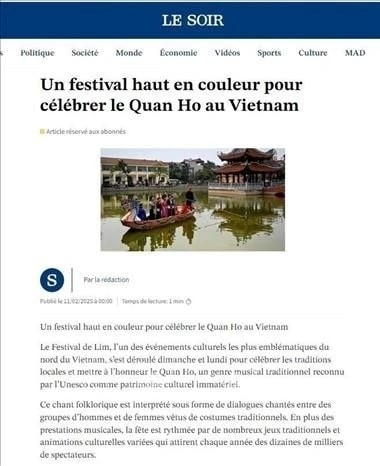 Travel
Travel





